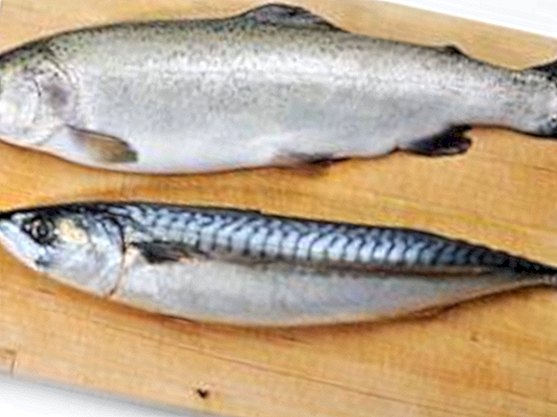Fish: He is so healthy!

Fish is healthy, every kid knows that. so far, there is nothing to say against fish fingers, as long as there are fillets in them and not some compressed fish leftovers. But with brand providers, you're on the safe side.
Fish not only tastes good, it is versatile and friendly to the figure. Even if it is a bit richer, like salmon or herring, it's "good" fatty acids that you can eat during a diet.
What fish has to offer - from protein to selenium.
protein
One hundred grams of fish contain up to 20 grams of high-quality protein. This is good for anyone who wants to lose weight - because protein is the best sattler that there is. In addition, protein stimulates the metabolism: The body needs almost a third of the calories in the protein in order to utilize the protein. And because the blood sugar level does not increase so much by protein, cravings can not even arise.
In addition, the body needs protein to build muscle. The official recommendation is: Per kilogram of body weight between 0.8 and 2 grams of protein are recommended and healthy. Fish provides particularly easily digestible protein.
Omega-3 fatty acids
Fish is the best natural source of valuable omega-3 fatty acids. These polyunsaturated fats are very healthy, protect against inflammation and against cardiovascular diseases, strengthen the immune system and brain function. The body needs it but can not make it by itself. In addition, they are important for the development of the baby during pregnancy.
In recent years, omega-3 fatty acids have made a real career in the food industry: more and more products are being fortified - from bread to baby food to eggs. Nutritionists warn, however, that these products may contain a lot of fat because these fats are still on top. Better to eat fish once or twice a week. High-fat fish such as salmon, mackerel or herring contain a lot of omega-3 fatty acids. Incidentally, it does not matter if the fish is fresh, smoked or marinated.
Vitamin D
Vitamin D is the "sun vitamin": The body produces it from sunlight itself. Children need vitamin D for bone growth and it strengthens the immune system.
Those who do not get enough sunlight - and that's the norm in our latitudes - should eat fish: Sea fish is the most significant natural source of vitamin D. A serving of fatty fish (150 grams) a week is enough to meet the vitamin D requirement to cover an adult. In people over the age of 65 years, the self-synthesis of vitamin D does not work so well. Therefore, they may need to take a vitamin supplement. It's best to talk to the doctor about it.
iodine
Especially in sea fish you will find a high content of iodine: This trace element needs the body, so that the thyroid gland works.
This thyroid forms hormones that affect numerous functions of the metabolism. Especially pregnant women and nursing mothers need a lot of iodine. If you permanently absorb too little iodine, the thyroid gland can grow diseased - a goiter is created.
selenium
Fish is rich in the trace element selenium, which supports the function of the thyroid gland. In addition, selenium strengthens the immune system and binds toxic heavy metals in the body.
Video: You have to do that with herringbone in her throat











